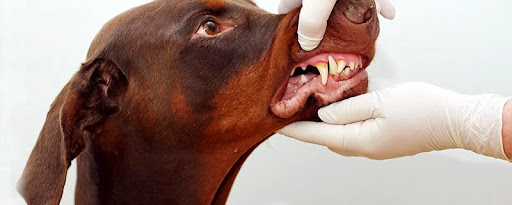Doggy Dental Resolutions
 Love them or hate them, now is the perfect time to pledge a New Year's Resolutions for a new dental hygiene regime for your canine friends. Dental hygiene is just as important for a cute new puppy as it is for an older dog who might have eaten too many sweets and treats this festive period!
Love them or hate them, now is the perfect time to pledge a New Year's Resolutions for a new dental hygiene regime for your canine friends. Dental hygiene is just as important for a cute new puppy as it is for an older dog who might have eaten too many sweets and treats this festive period!
Tartar and bacteria can build up on teeth over the years and this can cause gingivitis, periodontal disease, ulceration and tooth root abscesses; all of which can be painful and irritating for your pet (not to mention smelly!). It's important to be aware of signs that your dog may be having dental pain. Take note of a reluctance to eat, pawing at the face, lip licking and drooling as they can all be signs of discomfort, however the signs could be as unspecific as reduced activity.
As always, the best approach to dental care is preventative, which includes tooth brushing. It is the single most effective method of plaque control but it does need to be done at least three times per week to have any effect. Brushing has to be introduced slowly as some dogs do not tolerate it particularly well. Initially it involves getting your dog familiar with the tasty doggy toothpaste and then adding in small sessions of brushing, either with a finger brush or a toothbrush. For dogs, whose character doesn't suit brushing, products can be purchased to add to their food or water. Alternatively, a complete diet can be fed which is specifically designed to reduce plaque build-up. However, it is not known whether the diet can help pets that already have dental problems. Some owners prefer to give dental chews before their dog goes to bed, which has the added benefit of preventing boredom.
Dental procedures at the vets can also help make your pet more comfortable; they usually involve general anaesthetic followed by a scale and polish with, or without, tooth extractions. Be aware that it can be costly and is often not covered by insurance policies. Therefore, it is to everyone's advantage to try to minimise plaque build-up on your dog's teeth.
Although I have focussed mainly on our canine friends, cats are not exempt and also benefit from dental hygiene. However, in most cases, less invasive methods are preferred such as dental diets.
